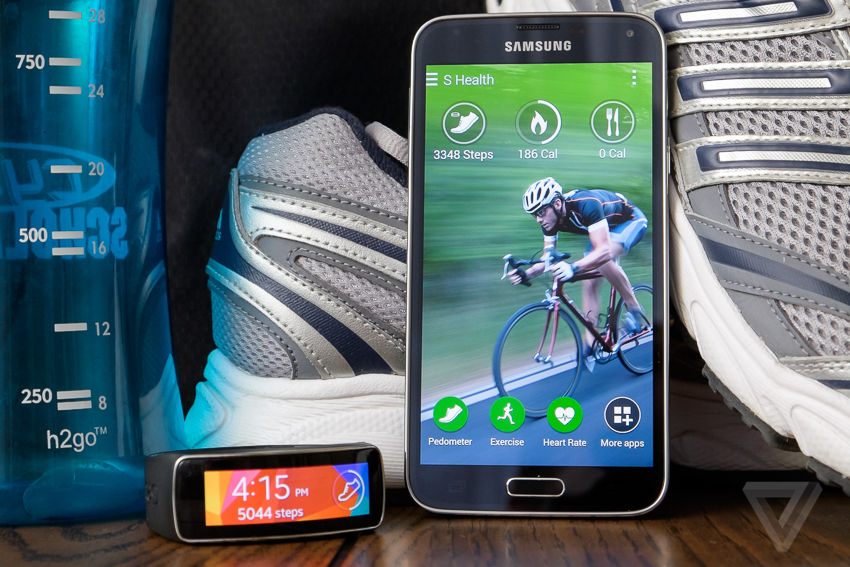The Health Tracking Race: Who Will Win?
Posted: June 30th, 2014 | Author: Lindsay | Filed under: In the News | Tags: Android, Apple, apps, consumer health, digital health, DoseSpot, fitness, Google, health & wellness, health tracker, healthIT, HealthKit, Samsung, technology | No Comments »Ready to get fit from the comfort of your own smartphone or tablet? Recent developments in the tech sphere likely have you covered. Over the past few weeks, three major players in the digital health industry–Google, Apple and Samsung–have unveiled newly polished, fitness-ready consumer health apps for public viewing. The initial verdicts on Google Fit, Samsung’s Gear Fit, and Apple’s iOS 8 Health app are officially out. Take a look below to see what consumers are saying:
Google FitÂ

Google Product Manager Ellie Powers describes the new Google Fit platform at the 2014 Google I/O, Google’s annual developers’ conference held in San Francisco.
Basics: fitness and health tracking platform for Android smart devices. Google Fit will aggregate users’ fitness data in one place, and sync data from popular wearable devices created by Nike, Adidas, and more.
Pros: comprehensive data analysis in one location, complete picture of users’ fitness and better tracking of fitness goals, single set of APIs for all health products.
Cons:Â too similar to already-existing data aggregation platforms, failure to address how medical professionals might access this data, potential compatibility issues.
Gear Fit by Samsung

Basics:Â a wearable activity-tracking wristband with a heart rate monitor, pedometer, and flexible display screen. Well-suited for basic activities such as running, walking, cycling, and hiking.
Pros:Â excellent display resolution, customizable screen features (backgrounds and clock face), changeable watch bands, compatible with at least 17 Samsung smartphones and tablets, notable ‘smartwatch’ features (phone call, text message, and email alerts).
Cons: error-prone and “bare bone†activity trackers, faulty mileage calculations, very low battery life (vs. JawBone and FitBit models), poor accessibility (requires bulky “charging cradleâ€).
Apple iOS 8 Health
 Â Â Â
   
Basics:Â iPhone app that allows users to collect biometric information (i.e. heart rate, blood pressure, etc.) and automatically send it to doctors or hospitals via the Medical ID feature.
Pros:Â comprehensive set of activity trackers (fitness, nutrition, sleep patterns, blood glucose levels, cholesterol levels, etc.), customizable and seamless user interface.
Cons:Â performance concerns with exchange of medical data (physicians bombarded with low-priority data and patient compliance issues).
Sources: TechCrunch, Apple, and The Verge.Â
Need more convincing? Engage your critical consumer eye with these helpful articles:
Gear Fit by Samsung: http://www.forbes.com/sites/ewanspence/2014/06/22/samsung-gear-fit-review-a-combined-fitness-band-and-stylish-smartwatch-for-your-galaxy-smartphones/
Google Fit: http://news360.com/article/243439279
Apple iOS 8 Health: http://9to5mac.com/2014/06/02/a-closer-look-at-ios-8s-health-app-video/
About DoseSpot
DoseSpot is a Surescripts™ certified e-Prescribing platform specifically designed to integrate with electronic health record, electronic dental record, practice management and telehealth software. DoseSpot has provided simple, affordable and integratable e-Prescribing solutions to healthcare IT companies since 2009. For more information, please visit www.DoseSpot.com.

 Follow
Follow
Leave a Reply